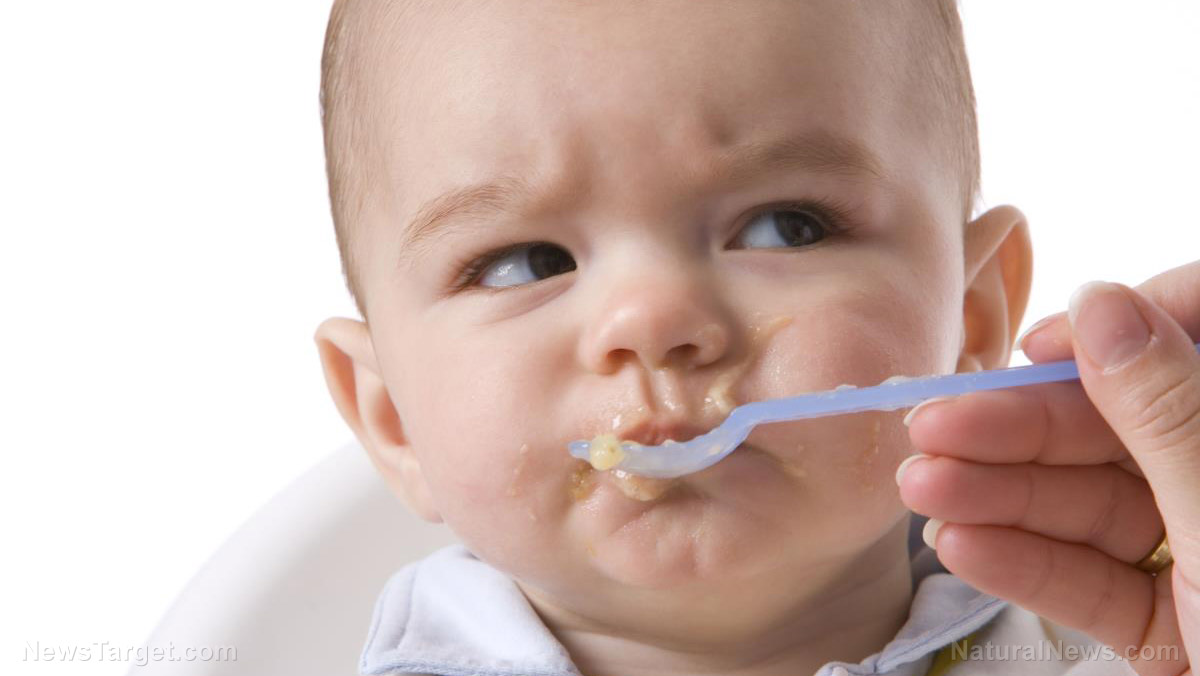 Parler
Parler Gab
Gab
Excess sugar puts infants in great health risks
According to experts, newborn babies primarily receive their nutrition from breast milk or infant formula in case of inadequate breast milk availability. Both sources already contain an appropriate balance of lactose, essential fats, proteins, minerals and nutrients that the baby needs. Giving sugar beyond what is naturally present in breast milk or formula can be problematic. Extra sugar can lead to rapid weight gain, Dr. Tanushri Mukherjee, pediatrician and neonatologist at Cloudnine Group of Hospitals in Mumbai said. This increases the risk of childhood obesity and associated health issues later in life, adding that this can also disrupt the baby's natural appetite regulation, leading to poor feeding habits and a higher likelihood of overeating as they grow older. Another risk that a child could face is blood sugar issues. "Newborns are particularly susceptible to fluctuations in blood sugar levels. Adding excess sugar to their diet can initially cause a spike in blood sugar levels, followed by a rapid drop," said Mukherjee. "This drop can lead to hypoglycemia, a condition where blood sugar levels become dangerously low. Hypoglycemia in newborns can result in symptoms such as jitteriness, poor feeding, lethargy, and even seizures in severe cases. Long-term hypoglycemia effects can be intellectual and developmental disabilities." Added sugar in infant food can also adversely affect a baby's digestive system, leading to gastrointestinal issues such as diarrhea, bloating, and abdominal pain. It can also disrupt the balance of beneficial bacteria in the gut, compromising the baby's immune system and overall gut health. Moreover, excessive sugar intake early in life can set unhealthy patterns for future dietary habits or hard-wiring. Babies given sugary solutions might develop a preference for overly sweet tastes, which can contribute to a higher risk of obesity and other metabolic issues later in life like type 2 Diabetes, hypertension and cardiovascular diseases. A baby's behavior and mood may also be affected as sugar can cause a temporary spike in energy with hyperactivity followed by a crash, leading to irritability, fussiness, difficulty sleeping and difficulty in concentration. The administration of extra sugar or glucose solutions to newborn babies is typically reserved for specific medical situations or conditions where it becomes necessary to stabilize the baby's blood sugar levels, including hypoglycemia, extreme low birth weight babies, management of neonatal abstinence syndrome, treatment of transient neonatal diabetes mellitus and post-surgery or critical care. (Related: Leading baby food brands contain arsenic and lead levels that damage the brain, causing autism in young children.) Head over to Health.news to read more stories related to taking care of one's health. Watch the video below that tackles Nestle's scandals, scams and cover-ups. This video is from the Vigilent Citizen channel on Brighteon.com.More related stories:
Turkish parliament boycotts Coke, Nestle products over the companies' alleged support for Israel. Baby food companies are exposing your children to heavy metals, warns congressional report and Consumer Reports: Beech-Nut, Gerber and more knowingly keep problematic products on the market. Lawsuit claiming heavy metals in baby food are causing autism and ADHD given green light to proceed.Sources include:
Stories.PublicEye.ch ArmageddonProse.Substack.com HindustanTimes.com Brighteon.comIsrael’s invasion of Rafah risks new MASSACRE, Jordan’s King Abdullah II warns Biden
By Ramon Tomey // Share
Governments continue to obscure COVID-19 vaccine data amid rising concerns over excess deaths
By patricklewis // Share
Tech giant Microsoft backs EXTINCTION with its support of carbon capture programs
By ramontomeydw // Share
Germany to resume arms exports to Israel despite repeated ceasefire violations
By isabelle // Share










